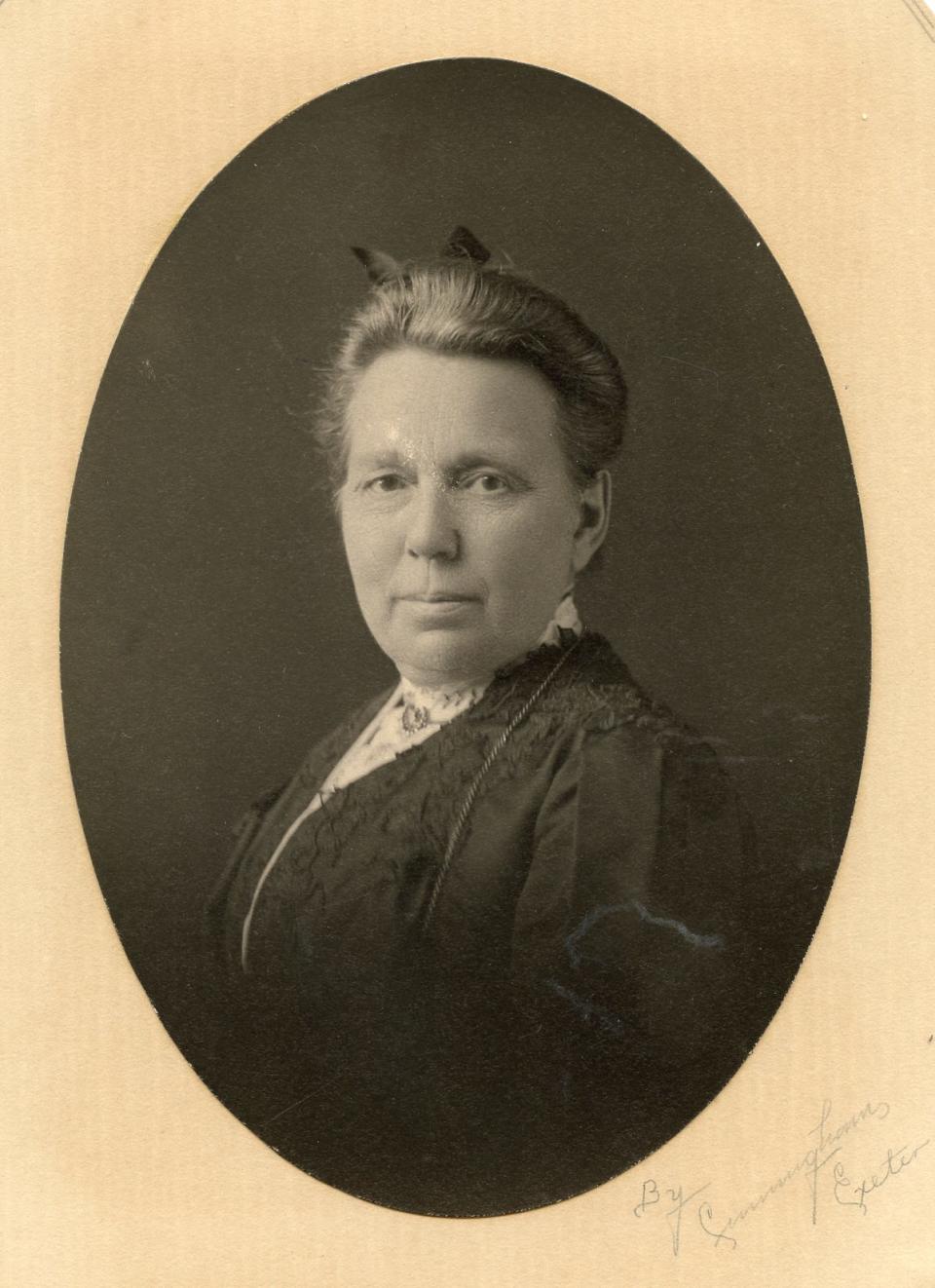Historically Speaking: Exeter owes Ella Laville Follansby a great deal of thanks
Little Ella Winslow never knew her father, who died when she was just three months old. The only child of Darius and Hannah Winslow, she was born in Northfield in 1846. Her mother married again, after Ella turned 3, and her stepfather, John Dearborn, quickly embraced his new role. Some families are cobbled together in this way. For Ella, it may have influenced the remainder of her life.
She went to school at Tilton Academy and later studied in Ipswich, Massachusetts – most likely at Ipswich Female Academy. There, she qualified to become a teacher and spent the next few years working in schools in Holderness and Northfield. She might have remained a teacher, but in the mid-nineteenth century only single women were allowed to teach. Ella married William H.C. Follansby, a local merchant in 1866 and her teaching days ended.

He began his business career as a merchant, moving with Ella to Barre, Massachusetts before settling in Exeter in 1875. William became a banker and the wealth it brought made it possible for Ella to become a social reformer. With no children of their own, Ella used her experience as a teacher to champion the needs and wants of children. This was a time when any child who had lost one or both parents was considered an “orphan.” Many would find themselves tossed into public care – at that time consisting of poor farms, asylums, or orphanages. She worried over the fate of children brought into the legal system. A tribute to her noted, “Many is the sentence which through her pleading has been mitigated, suspended or withheld, in very many instances with beneficial results. It was through Mrs. Follansby’s instrumentality that the law was passed in removal of children from the county almshouses.”
She didn’t just discuss issues at the Ladies Social Circle, she showed up when needed. Exeter Probate Judge Louis Hoyt said, “My attention was first called to her work several years ago while filling the office of a prosecuting attorney. When juvenile offenders were before the courts for serious offences, she had a habit of looking them up, ascertaining the nature of their home surroundings, and holding conferences with them to learn what they thought of life. She was not a sentimentalist, but believed that all people conscious of their doings should be held accountable for them, but where she found good nature led astray by unfortunate influences she asked that she might be allowed to find a home for such in another section of the state, far removed from former associates, and pleaded that they might be permitted to start life anew, burdened not even with the weight of a suspended sentence.”
She herself fostered over 35 youngsters in her large home on High Street. In 1895, she was appointed to the New Hampshire State Board of Charities and Correction, a position she would continue to hold until her death. Children brought before the courts – even probate court if they’d been orphaned – often found Ella Follansby in attendance. Of the many children she and William fostered, they legally adopted only one – Daisy Luck, one of three sisters left without a mother, their father unable to care for them. Daisy attended the Robinson Female Seminary, graduating in 1915 before taking a degree at Smith College.
Ella Follansby became involved in local efforts to open a hospital in Exeter. She was on the committee that purchased Exeter Hospital’s first home on Pine Street and she served as a trustee and treasurer for many years. Her death, at the age of 61 in 1907, saddened the state and local community. Tributes to her covered the front page of the Exeter News-Letter. Business in town shut down for the two-hour funeral. Judge Hoyt opened his court session the following Tuesday with a lengthy tribute to the woman who had stood before him so often to advocate for children.
Often in the study of genealogy, those people who have no biological offspring are forgotten or given only brief mention. Ella Follansby defies that stereotype. She was able to move the social climate without ever being allowed to legally vote. Unable to have a family naturally, she modeled the creation of a family to those who would otherwise not have considered taking in children not directly related. New Hampshire and Exeter owe her a great deal of thanks.
Barbara Rimkunas is curator of the Exeter Historical Society. Support the Exeter Historical Society by becoming a member. Join online at www.exeterhistory.org.
This article originally appeared on Portsmouth Herald: Historically Speaking: Ella Laville Follansby of Exeter

